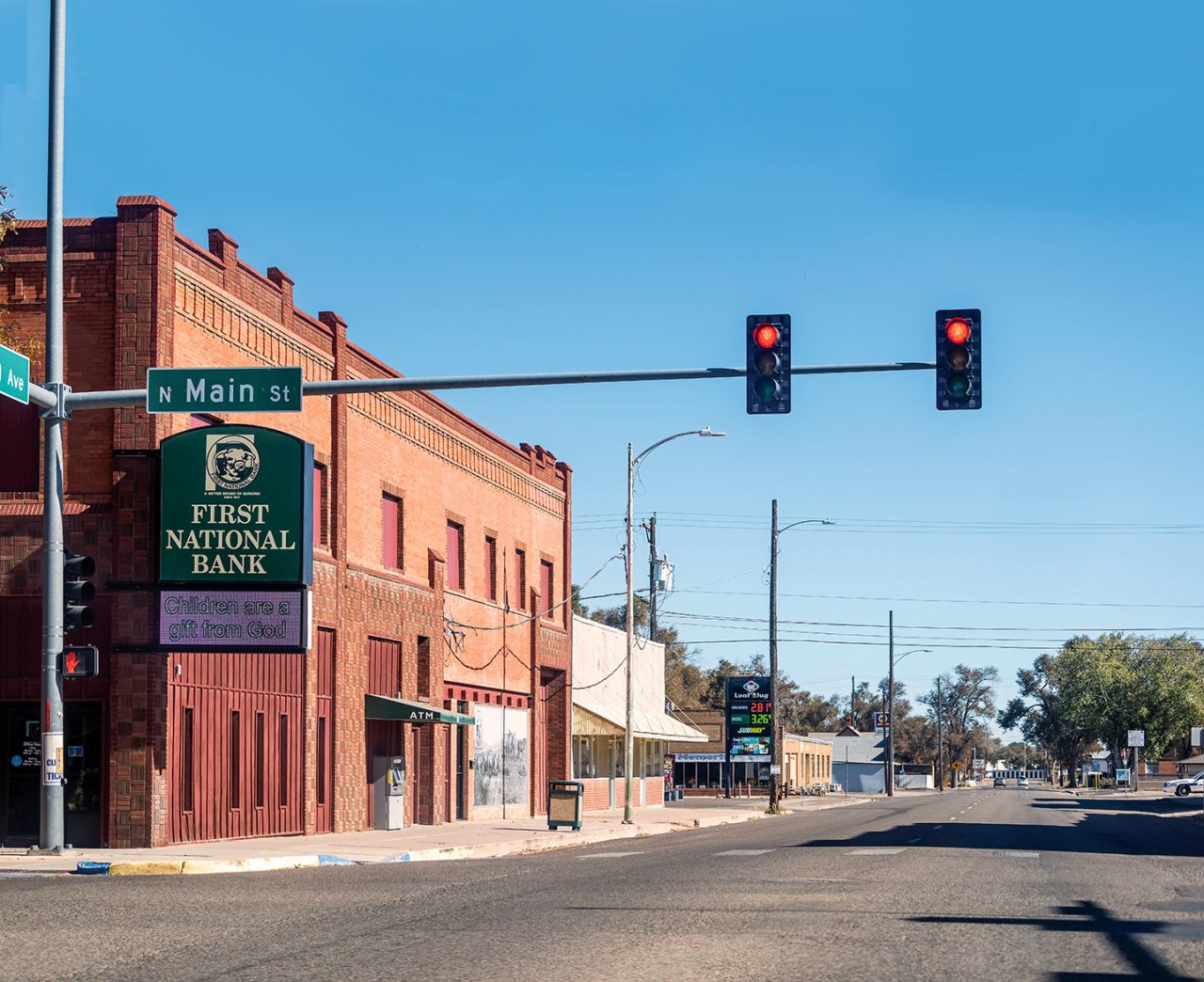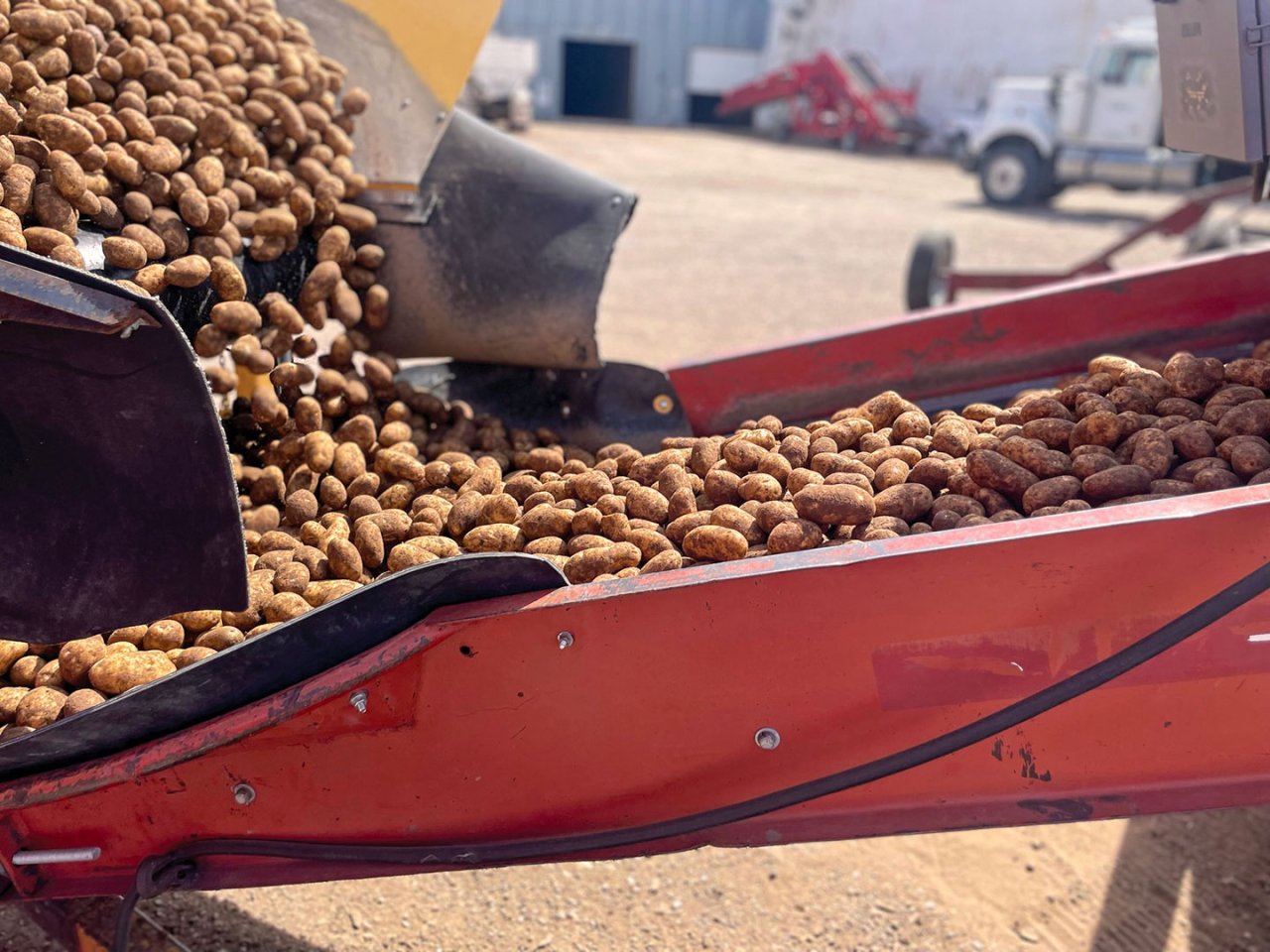Achieving One America

Pulitzer Prize-winning journalist Gregory Moore '76 considers the political and cultural divide between urban and rural America in this essay he wrote for OWU Magazine.

When I say I'm a city boy, that's exactly what I mean. I grew up on the East Side of Cleveland, and my public high school was bigger than the private college I graduated from—Ohio Wesleyan University in rural Delaware, Ohio.
About 45 minutes into the drive to get dropped off at college, I asked my dad: "What happened to all the tall buildings?" I had never seen so much corn and wheat, and ramshackle barns and cows. It was the first time I realized Ohio was a big agricultural state.
Fifty-two years later, I don't know much more than I did back then about rural America. It's a hole in my life experience that I regret. Those of us who have grown up in gritty urban cities really should know more about our fellow citizens who inhabit the rest of America.
What little I know about rural America is from trips with my parents during segregation, down to Georgia and Alabama to visit my grandparents and other relatives. The constrictions and mores back then frightened and disgusted me. It was like being in a foreign country, and I never got over it.
Years later, I was driving with a friend through the Pennsylvania countryside to Connecticut for his wedding. I remember feeling objectified and fearful when we stopped for a break. At a urinal, I was greeted with a racial epithet scrawled on the stall telling Black people like me to go home. Not surprisingly, I rarely strayed from big cities during my many travels.
Now, I live in a suburb just west of Denver. On a recent trip to rural Colorado, I was determined to open myself up to the people and culture as best I could in the few days I would spend there. It was eye-opening.
Blowing through some of these small towns, only five blocks long before expansive fields resumed on both sides of the highway, I kept trying to get my head around what it would be like to live there.
I admit to having a little discomfort at seeing so many political signs for Donald Trump. There was this one farm with four large silos visible from the road, each had painted on it the name of one of the candidates from the last four Republican presidential tickets. On another was written: "Let's Go Brandon." A very different vibe from the city I had come from. I prayed for no car trouble.
At another point, I had to go to the bathroom, so I parked at a large rest stop. I felt like a fly in clabber. I swallowed deep and went in. I thought I was going to encounter the scene from the Eddie Murphy movie where he walked into a redneck bar and everybody froze, staring at him. I got some of that, but it was the exception. A man exiting the store stood back and held the door open for me to enter. "After you, sir," he said.
I exchanged pleasantries with numerous patrons, bought a Coke and chatted up the cashier about the high cost of gas there. I was embarrassed by the judgments I had placed on these folks. The fear of the unknown can be corrosive. Still, I was anxious to keep moving just in case the mood might change.
Since I was down that way on business, I got to see quite a few things. My group visited a potato farm where a colleague had grown up with her family. She still lives in rural Colorado but has since migrated to a bigger community.
They proudly showed us around. I was stunned at how many potatoes they were harvesting—hundreds of thousands—and that almost everyone working there was Hispanic. Their value was clear, and they were treated with respect, not the fear that we've been fed so much of lately.
[R]ural Americans come to the big city from time to time and work hard to expose themselves and their kids to life there. By and large, we don't do the reverse.
The level to which everything was mechanized—including separating the best potatoes from the not so good ones for market—was impressive. The farm was also using artificial intelligence to maximize efficiency.
And the owners were the sweetest people. They fed us a sumptuous meal of potatoes. I didn't know you could put so much stuff on a potato and that it could taste so good. They sell to restaurants, fast food joints, and grocery stores and yet have only one percent of the potato market. It looked like they could supply the whole country. City boy!

It was an incredible glimpse into agricultural life. We all should see that. It would lead to a greater appreciation for the people who do the hard, grueling—and yes—risky work it takes to feed America. One bad crop, they told me, and a farm might go bankrupt.
Starbucks was everywhere, just in case you were wondering. I visited nonprofits that were fighting light pollution so more people could enjoy the stars at night. Others promoted bike riding while lamenting the rudeness of motorists, and still others were creating community gardens because everything seems more expensive beyond the city. The community-mindedness was laudable.
I went to a craft brewery in the middle of a farm. Fascinating story. The farm had been in the family for generations. It was growing an exhausted crop, and the matriarch was at her wits-end and wanted to sell.
The family convinced her to convert the crop to barley and sell to Coors. Just give it one year, they pleaded. She agreed and kept the farm. When her son suffered a brain injury, now a friendly bear of a man with a long white beard, his sons decided to give up life in the big city and come home to help.
One was a former art teacher who learned the beer business. He now runs the farm, and they still sell to Coors, but they also built a brewery right on their land selling incredible craft brews. It's a popular gathering place for many in the San Luis Valley.
What a story of perseverance. And that's the word that characterizes many of the people I met there. They are tough, love the life they have, are willing to work hard to keep it, and they don't care what anybody thinks about that.
I met many boomerangers who left the city to come back home and make a life in the country. A chef with her husband turned a decommissioned Episcopalian church into a restaurant and bar. They serve some of the best food and drinks I've had anywhere. Incredibly, the Friar's Fork & Sanctuary in Alamosa is a finalist for a James Beard award!
And sure, some people there have stereotypes about those who live in the city just like city dwellers have about those in the country. One big difference, though, is that rural Americans come to the big city from time to time and work hard to expose themselves and their kids to life there. By and large, we don't do the reverse.
Those of us who live in cities might take a page from their book. That would do a lot to close the urban-rural divide in our culture and our politics. It's the main reason I was encouraged that Tim Walz ended up on a presidential ticket. I hope we can all become more familiar with life in a small town and learn something about people who do things differently.
Three days certainly aren't enough to draw broad conclusions. But it is enough to have a more open mind.
Folks in rural America are living good lives. They might have a different pace or perspective, but we want most of the same things.
We would know this if we more freely crossed the divide that we've allowed to exist. We all should seek that journey to better understanding, even if it's only for a couple of days. We'll discover that we're closer to one America if we give it a try.
Gregory Moore '76 is the CEO of Klowtify, a Denver-based thought leadership company, and the former editor of the Denver Post.
